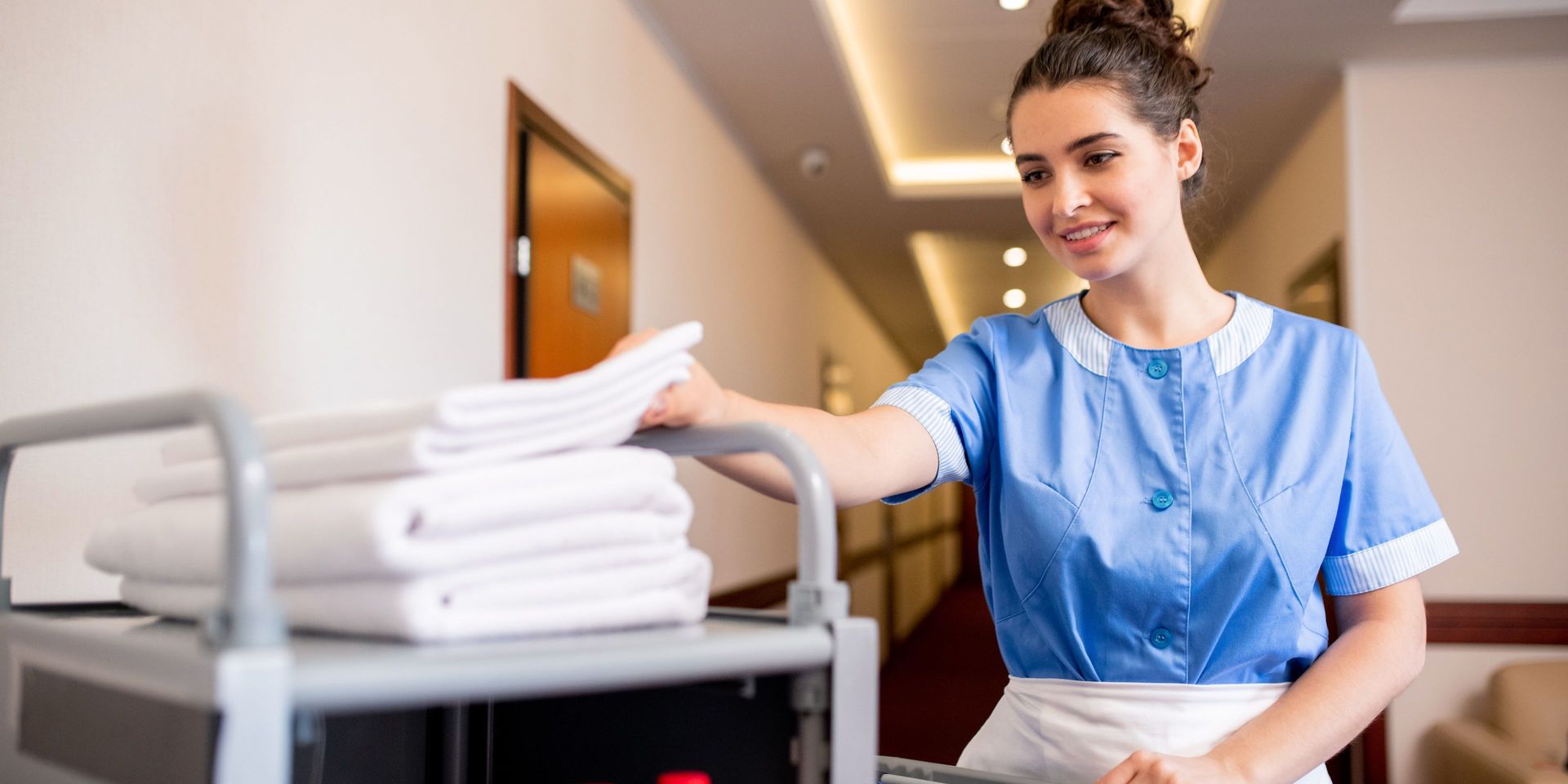The floor attendant must master cleaning and maintenance techniques specific to the hospitality sector: using the right products, following hygiene protocols, managing linens, and maintaining equipment. They are familiar with disinfection procedures, room restoration processes, and the quality standards required by the hotel’s category.
In terms of soft skills, punctuality, reliability, and organizational skills are essential to ensure smooth and efficient service. Training in safety and risk prevention (manual handling, chemical products) is often appreciated.
The role is accessible without formal qualifications, but certain training programs can make hiring easier, such as the CAP in Cleaning and Hygiene, CAP in Hotel Services, or the Professional Certificate for Hotel Housekeeping Staff. Hands-on experience, especially in temporary or seasonal work, remains an excellent way to gain the right skills and progress quickly.
What is the salary of a floor attendant?
A floor attendant’s salary varies depending on experience, the type of establishment, and working hours. At the start of a career, it generally aligns with the current minimum wage, which is €1,801.80 gross per month in 2025 (around €1,425 net for a 35-hour week).
With experience or in higher-end hotels, the salary can reach €2,100 to €2,300 gross per month, particularly when additional responsibilities are taken on (team coordination, evening/weekend/holiday shifts). Bonuses (seniority, meal allowance, performance) may supplement the base pay depending on internal agreements or the applicable collective agreement.
In temporary work, the hourly rate is often slightly above the market average, and total income increases through end-of-assignment (IFM) and paid-leave (ICCP) allowances, often exceeding the entry-level wage for an equivalent number of hours worked.
Career development opportunities
After gaining initial experience, the floor attendant can progress to experienced room attendant or team leader. With strong organizational and management skills, they can move up to floor supervisor and eventually executive housekeeper, overseeing schedules, quality standards, and coordination between reception and maintenance.
Depending on the size and standing of the establishment, other opportunities may arise, such as quality or hygiene coordinator (procedures, audits, internal training), laundry management, or multi-site housekeeping supervisor (resorts, serviced residences). In the long term, positions like assistant accommodation manager or accommodation manager are available for those skilled in operational management and customer relations.



